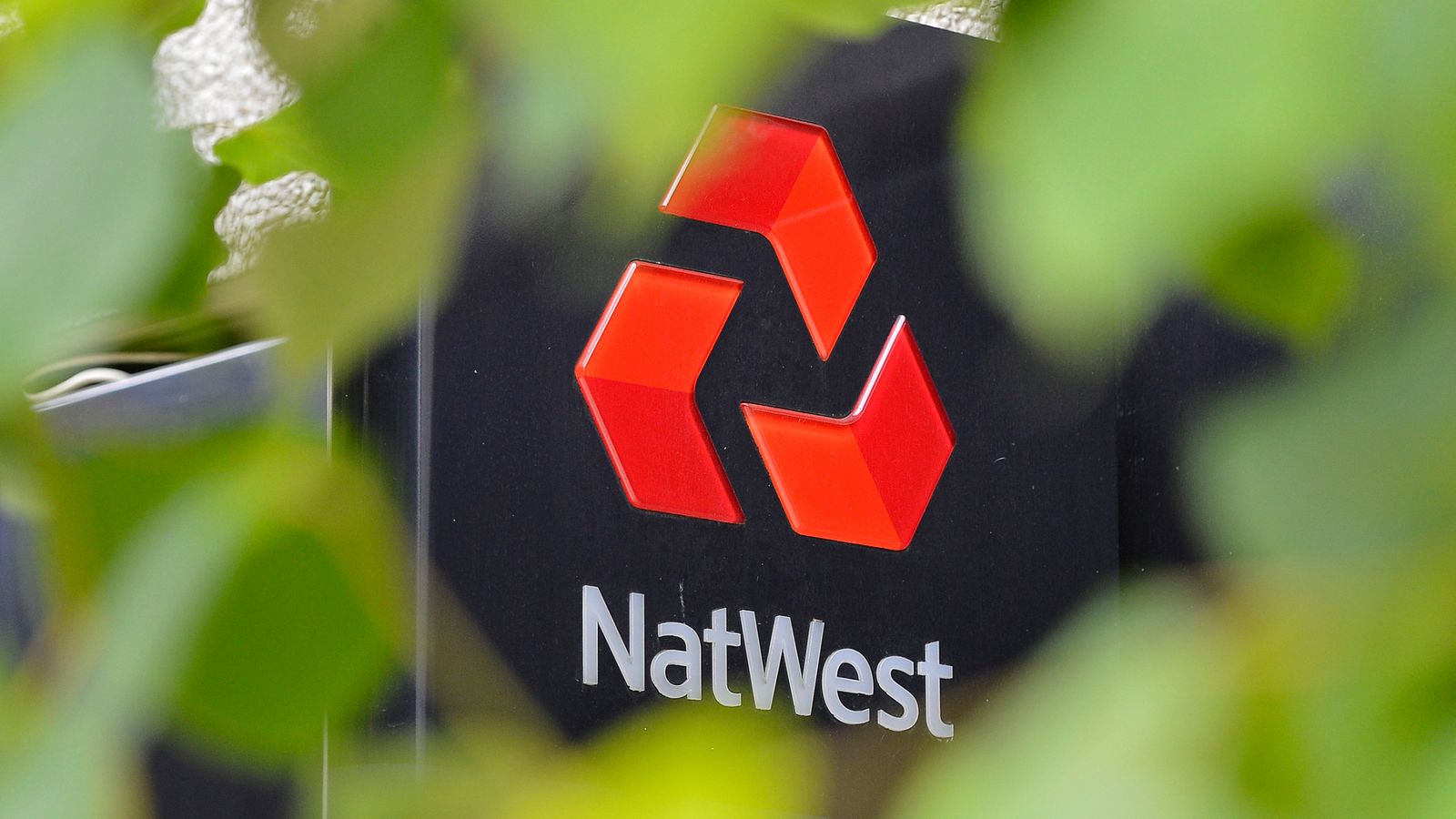Ministers are preparing to sell another stake in NatWest Group, taking British taxpayers close to ending their status as the bank’s majority shareholder for the first time in well over a decade.
Sky News has learnt that a number of institutional investors have been sounded out about a possible placing of NatWest shares that could take place in the coming days.
One fund manager said that if it proceeded with the deal, the government was likely to sell just over £1bn of stock, equating to a stake of approximately 5%.
That would take the Treasury’s shareholding to just under 55% – its lowest level since the bank’s £45.5bn bailout in the autumn of 2008.
Goldman Sachs, which is the government’s retained privatisation adviser, is expected to spearhead the transaction with other investment banks involved as bookrunners on the deal.
One market source cautioned, however, that the sale could be aborted if market conditions deteriorated.
On Monday afternoon, shares in NatWest – which until recently was called Royal Bank of Scotland Group – were trading at about 203p, up nearly 2% on the day, continuing the stock’s strong recovery over the last year.
Nevertheless, any transaction at around this level would crystallise another loss for British taxpayers, who paid an average of just 500p for the shares at the height of the 2008 banking crisis.
At one point, the government owned more than 80% of what was then RBS, prompting calls from banking reform campaigners and some politicians for the lender to be nationalised altogether.
Those demands became increasingly vocal as the bailed-out bank was embroiled in a series of trading and conduct crises, including over its treatment of distressed small business customers and its involvement in Libor rate-rigging and foreign exchange manipulation scandals.
In March, the Financial Conduct Authority commenced criminal proceedings against NatWest over alleged breaches of money-laundering offences which involved £264m in cash being paid into a UK-incorporated customer’s account.
If the latest share placing is confirmed, it would be the second reduction in the government’s stake in little more than seven weeks.
In March, NatWest bought back a £1.1bn chunk of shares from the Treasury, reducing the taxpayer’s interest in the bank to just under 60%.
Prior to that transaction, the government had not sold any shares in the bank since 2018.
Volatile markets and the coronavirus pandemic had impaired any hope of selling down the stake during the previous two-and-a-half years.
An institutional placing will raise questions about the timetable for the government offloading its remaining stake in NatWest.
In documents published alongside Rishi Sunak’s Budget in March, the government again delayed the expected date for disposing of its shares in the bank to the 2025-26 financial year.
Responsibility for the timing, size and structure of share sales in bailed-out banks rests with the chancellor, who relies on advice from UK Government Investments, the agency which manages taxpayers’ interests in publicly owned companies.
The government injected £45.5bn into RBS as it teetered on the brink of a collapse which would have had even more profound consequences for the global banking sector and the UK economy.
The five years after, which were overseen by Stephen Hester, the bank’s then chief executive, largely involved attempting to stabilise it, reduce its exposure to investment banking and contend with a series of reputational crises.
Alison Rose, who took over from Ross McEwan as NatWest boss in 2019, has announced plans to further pare back its investment banking activities and reduce costs.
Earlier this year, it reported a £350m loss for 2020, largely as a result of higher impairment provisions because of the COVID-19 crisis.
In quarterly results published last month, it said it had started to reverse some of those charges.
It has also announced plans to pull out of the Irish banking market.
Ministers have always insisted that disposals of NatWest shares would be subject to value-for-money considerations and market conditions.
The most recent institutional sale took place in June 2018, involving a 7.7% stake in RBS.
That was undertaken at a price of 271p-a-share.
On Monday, the bank had a market value of just over £23bn.
The Treasury said that the government’s “intention is to exit its shareholding in NatWest Group by 2025-26, subject to market conditions and achieving value for money”.
“We do not comment on speculation about the timing and method of sales.”
NatWest and Goldman Sachs declined to comment.






















